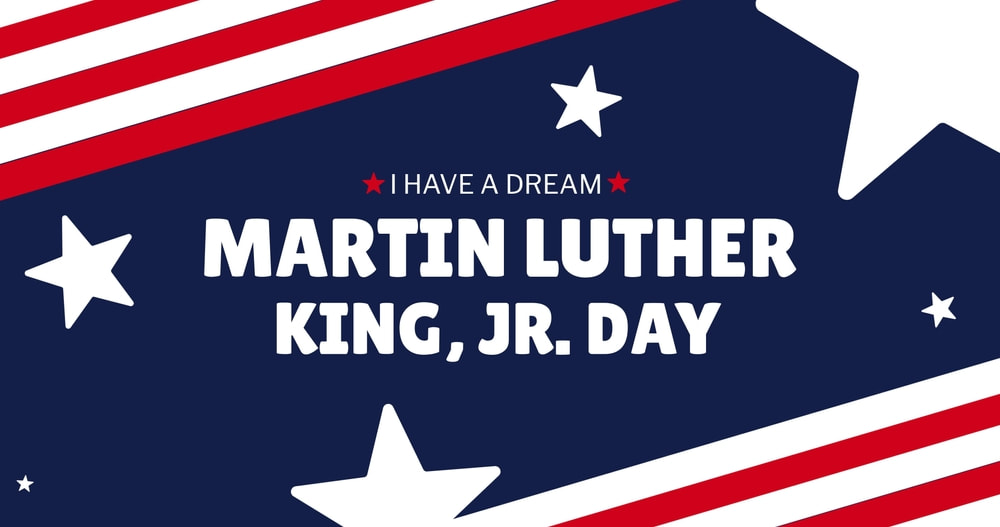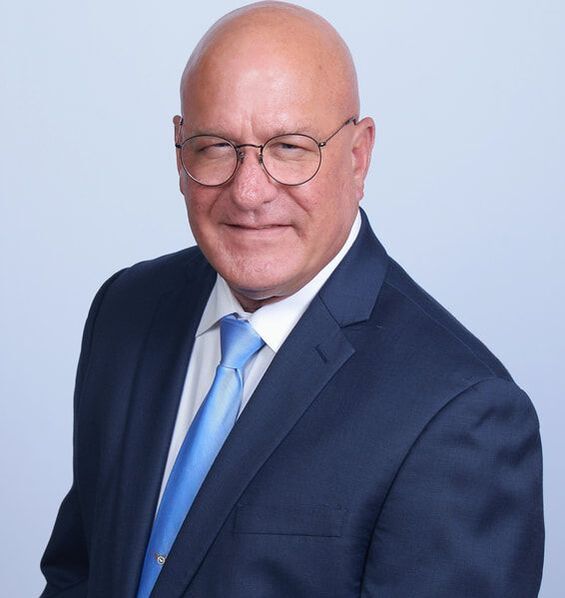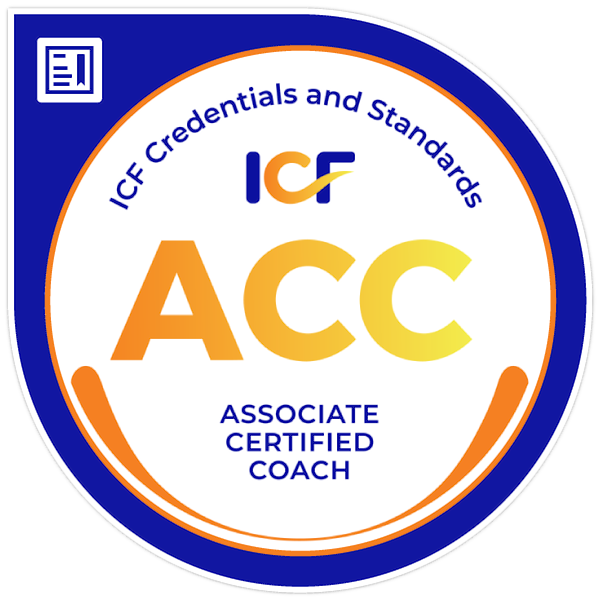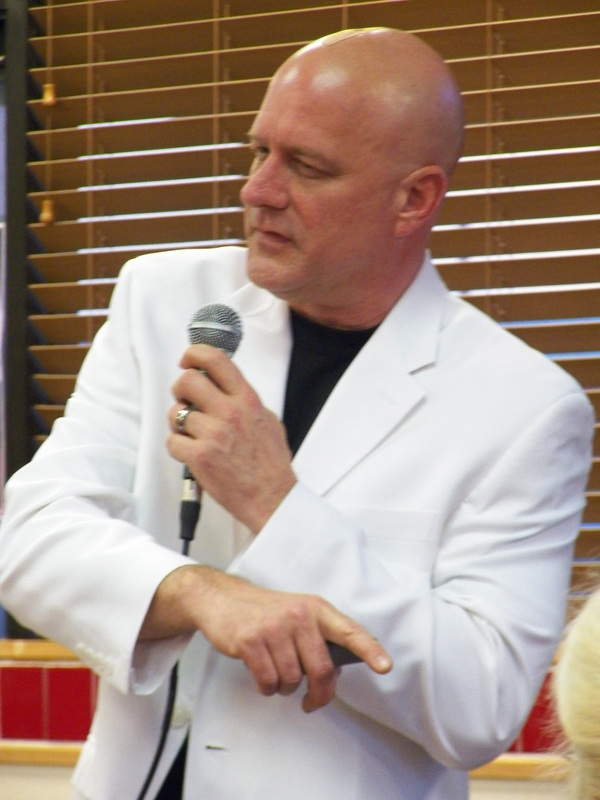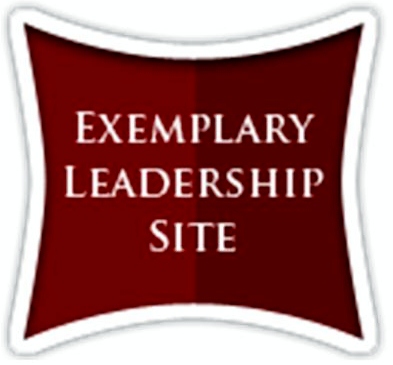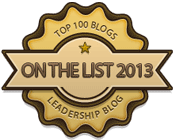|
Built between 1675 and 1710, St. Paul’s Cathedral in London has served as a key location for several important events in British history, such as the wedding of Princess Diana and Prince Charles in 1981, and the funerals of Lord Nelson, Winston Churchill, the Duke of Wellington and Margaret Thatcher. It has been described as the quintessential example of the English Baroque, and has come to be seen as a symbol of London itself. The dome of St Paul's is considered an engineering marvel. Here is a wonderful story about Sir Christopher Wren, the famous architect of this majestic cathedral. The Three Bricklayers One morning Sir Wren passed among the workmen, most of whom did not know him, and he asked three different men engaged in the same kind of work the same question: “What are you doing?” MEANING & PURPOSE This story has many renditions. Its original source has been traced back to a book published in 1927 by Bruce Barton, What Can A Man Believe. The story has been shared again and again. And for good reason. It's not only a story about how we view our work—perspective and how one can frame that—it's a story about meaning and purpose. Three bricklayers all doing the same thing, and yet, each one views their work differently. One simply describes what he does. It's his j-o-b. The second takes pride in a craft that allows him to meet basic needs and provide for his family. The third, inspired by a leader he doesn't even recognize or know, connects his work to a wider and more inspiring meaning and purpose. Meaning and purpose at work has become a crucial factor for employees, leaders, and organizations like never before. Meaning and purpose at work are connected to employee retention and engagement, organizational pride, well-being, life satisfaction, productivity, financial success, and overall leadership effectiveness. Solid, consistent, and extensive evidence continues to demonstrate the power of purpose. Employees want it. Leaders acknowledge its strategic, financial, and operational benefits. But, the research also demonstrates that leaders and organizations are simply not delivering it or not delivering it well. LIFE MISSION & A LEADERSHIP PHILOSOPHY Developing, leading, and living by a powerful life mission and leadership philosophy is a fundamental way we can harness the power of personal meaning and purpose, just like the third bricklayer. It serves to inspire and guide us—and when we lead and live by it, we inspire others. When we believe in and act on something that gives us greater meaning and purpose in our lives, we simply try harder, work longer, are more creative, and produce better results, products, and outcomes. It also serves to bind others together in a higher, common cause and boosts engagement, connection, and team cohesion. It brings a sense of greater contribution and fulfillment. Unfortunately, many leaders have not been given the skills, tools, and strategies to develop a leadership philosophy—much less discovered how to lead and live by one. They are missing a key, strategic and fundamental leadership tool that can not only transform their leadership, it can transform lives. LEADING WITH MEANING & PURPOSE A new course is coming soon that will provide those for you: The skills, tools, and strategies to develop a leadership philosophy to live and lead by. Leading With Meaning and Purpose will empower you to amplify your leadership effectiveness and it has the potential to change your life.
The skills, tools, and strategies you learn in this developmental experience will last a lifetime. And when you lead and live by them, model them, and mentor others with them, you create a ripple effect with those you lead and serve that will last for generations. Watch this space for release dates and launch-week exclusive discounts. Have an amazing journey today! Alan Mikolaj is a coach and leadership development consultant with 15+ years of experience. He is passionate about helping leaders transform their leadership, their teams, and their organizations. Impactful, professional approach driven by a passion for meaning and purpose, a growth mindset, and a commitment to excellence and service in order to drive change and results.
Alan maintains the ethics and standards of behavior established by the International Coaching Federation (ICF), including the standards regarding confidentiality. You can learn more about them on the ICF website.
0 Comments
This week's blog presents a summary of three key findings from recent research that can help you be a more successful remote leader (SRL). The terms remote leadership, virtual leadership, and e-leadership are currently used interchangeably in the literature. For simplicity, I will use the abbreviation SRL for the term successful remote leader throughout the blog. In a recent article* published in the Journal of Advanced Nursing, Anja Terkamo-Moisio1 and colleagues report on their findings from an integrative review of remote leadership. Their exhaustive search of thousands of articles was whittled down to 21 studies that met their criteria. Those studies researched IT firms, global business organizations, and the manufacturing industry. They were trying to find the answers to three questions:
Here are my top take-aways from their findings: 1) Common Characteristics of the SRL 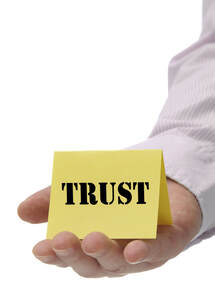 Under this question, the characteristics of the SRL could be expressed through three, intertwined themes: 1) Characteristics of the remote leader; 2) Trust and communication in the remote context; and 3) Fostering a team culture in a remote context. Characteristics It's no surprise that the research confirmed what we already intuitively know: SRLs have a relationship-focused leadership style with strong EQ qualities. Whether you're remote or not, in today's business environment, any leader needs these skills in order to be successful. Empathy, being a good listener—to include the ability to pick up on unspoken messages—and a transformational leadership style were all strong qualities of a successful remote leader. While other styles contributed to being an SRL, the transformational leadership style contributed the most. In addition, the SRL understands and appreciates employee’s expertise and the circumstances under which they work. This leads the SRL to extend greater employee autonomy and responsibility so that they can make their own independent, fast decisions. Other key characteristics of the SRL include the ability to define their own leadership role, strong management skills (such as creating a vision and goal-setting), being tech-savvy, and engaging in their own continuous learning and development. Trust & Communication Reciprocal trust was found to be more crucial in remote leadership than ‘traditional’, face-to-face leadership. However, trust-building in the remote environment is more difficult and the SRL must proactively dedicate time to trust-building. The skill of empathy from above was crucial to enhancing trust, along with a sense of justice. The SRL strives to create a psychologically safe environment. Other factors contributing to trust were the SRL's ability to focus, not just on the frequency of their communications, but on the quality of their communications and adjusting their communication style to specific audiences. Team Culture Finally, the SRL emphasizes seeing teamwork and collaboration as continuous development. They also avoid tightly defined roles and facilitates the creation of a common set of shared goals. 2) Enhancing the Leader-Team Relationship Based on the experiences of both leaders and employees, the leader-member relationship in the remote context can be enhanced by organizing regular FTF meetings, regular communication, clear communication policies and building positive team spirit in the remote context.  Regular face-to-face (FTF) meetings, both formal and informal, allow the SRL to check on their employees’ well-being as well as grasp the dynamics in teams. Those regular meetings give employees the opportunity to talk with collaboration partners and share personal experiences. When the SRL engages in the skills and strategies above while in these meetings, it strengthens the leader-employee relationship, strengthens relationships between team members, and is beneficial for reciprocal trust building and avoiding conflict. The authors recommend that the SRL should pursue the role of a mentor and facilitator to strengthen human relations and encourage employees to regard remote collaboration as a learning opportunity—all while striving to create a psychologically safe environment. 3) Challenges in Remote Leadership The researchers identified two areas of challenges of remote work and leadership: 1) Remote leader-related challenges and; 2) Remote team member-related challenges. Remote Leader Challenges A lack of organizational support represents a significant challenge for remote leaders. Leaders and employees may simultaneously work on different projects, which means that there is the strong possibility that they are focused on competing goals. The demands of a remote leader may not always be clear to an organization, with remote leaders perceiving this lack of clarity as a lack of support. Remote leaders have a need for numerous resources and devices along with education, networking, and flexibility. Without these, success can be challenging, if not impossible. Add to this the challenges of working in multiple places, from the home office to airplanes. These plus the imbalance between work and private life increases the risk of burnout and turnover. Many remote leaders miss the transition from the workplace to private life, finding a never-ending work overlap with their social-and family life. Remote Team Member Related Challenges Many remote workers report having worse working conditions than those who are in the office. Relational conflicts are easily exacerbated by remote work, as well. This is one cause of many remote workers reporting perceptions of workplace isolation—even if their leader conducts regular one-on-ones and meetings. Dissatisfaction with the leader, together with perceptions of a lack of support from the leader, influence employees’ turnover intentions. Set goals & action-plan These formal findings present an opportunity to review them with an open mind and growth mindset. For your convenience, the full study is available under an open-source license from Wiley below. From that space, you can dedicate time to reflect on your leadership skills, behaviors, and strategies—even seek feedback from others—and allow some time to let the findings percolate into goals and an action plan towards greater success. Coaching can help. Coaching gives you a safe and confidential space to work through issues such as these by helping you clarify the issues for you, setting goals, and strategizing your best path forward. Coaching can hep you increase your leadership effectiveness and help you to achieve success and greater fulfillment. Impactful change starts with a conversation! Schedule your free, one-hour session by clicking here: Discovery Conversation with Alan Or call or email me: Contact Page Have an amazing journey today! *Terkamo‐Moisio, A., Karki, S., Kangasniemi, M., Lammintakanen, J., & Häggman‐Laitila, A. (2022). Towards remote leadership in health care: Lessons learned from an integrative review. Journal of Advanced Nursing, 78(3), 595-608.
Historians agree that the most compelling English-language vision speech of the 20th century occurred more than fifty years ago in 1963 when Dr. Martin Luther King, Jr., standing on the steps of the Lincoln Memorial, inspired America and the world by telling them about his dream. In addition to the lessons of love and equality that Dr. King gifted us, he also models powerful shared-vision communication skills.
Among so many reasons the speech was so compelling is that it excelled at modeling the five elements of Kouzes and Posner’s definition of a shared vision: A shared vision is an ideal and unique image of the future for the common good.
JIM KOUZES & BARRY POSNER
The Leadership Challenge
The Five Elements
I Have a Dream Dr. King did not deliver the “I Have a Strategic Plan” speech. He did not orate that “I Have a Metric Dashboard.” No. He delivered his famous “I Have a Dream” speech. Exemplary and great leaders lead with meaning and purpose. They lead with vision. While metrics, business plans, and strategic plans all have their rightful places, they are rarely all that inspiring, particularly to front-line employees. Any particular metric is simply one way of measuring if we are actualizing or achieving our mission, purpose, vision, or strategy. You are the leader. People look to you for inspiration, motivation, guidance, empowerment, recognition, vision and whether you can be a role model or not. In other words, they are asking, “Do you talk the talk?” and “Do you walk the talk?” Meaning and purpose starts with you. What is your compelling vision of the future for those you serve and lead?
For inspiration, watch the last five and a half minutes of Dr. Martin Luther King’s
“I Have a Dream” speech below or on YouTube. It leaves me with chills and a tear every time.
Have an amazing journey today!
Alan Mikolaj is a coach and leadership development consultant with 15+ years of experience. He is passionate about helping leaders transform their leadership, their teams, and their organizations. Impactful, professional approach driven by a passion for meaning and purpose, a growth mindset, and a commitment to excellence and service in order to drive change and results.
Alan maintains the ethics and standards of behavior established by the International Coaching Federation (ICF), including the standards regarding confidentiality. You can learn more about them on the ICF website. National Law Enforcement Appreciation Day Today is National Law Enforcement Appreciation Day in the United States and is a tribute to the men and women across America who have made the sworn commitment to protect and serve our communities as law enforcement officers, sometimes at all costs. According to Wikipedia, there are over 900,000 officers in the United States. Join me in honoring and appreciating those who protect and serve us, our communities, and our nation. In my younger years, I worked as a paramedic, paramedic instructor, and as an emergency services critical incident stress management volunteer for over 20 years. While completing my Master of Arts in Clinical Psychology, I wrote a book on stress and critical incidents for emergency services workers, Stress Management for the Emergency Care Provider. As a paramedic, I had the opportunity to work with law enforcement in the heat of action in places and situations not many get to witness. When I left active 911 work and became an educator, I led one of the first critical incident stress management teams in the the state of Texas. Part of the services we offered was responding to critical incidents to help mitigate the psychological aftermath of some of the most horrid tragedies and disasters that comes with emergency services work. To protect and serve. However, I've never seen anything like what happened two years ago on January 6, 2021 when law enforcement was called on to protect, defend, and serve our Congress and our great nation. In a moving ceremony on the second anniversary of the January 6th insurrection this past Friday, President Biden awarded 14 individuals with the Presidential Citizens Medal which is among the nation’s highest civilian honors. Established by executive order on November 13, 1969 by President Richard Nixon, the Presidential Citizens Medal recognizes a US citizen "who has performed exemplary deeds or services for his or her country or fellow citizens." The majority of the honorees receiving the medal were eight law enforcement officers, three of them posthumously:
As a citizen of this great nation, I want to express my appreciation for these eight law enforcement officers and so many others who defended the capitol two years ago. You can read more about each of them in a well-done piece by NPR's Elena Moore here: Biden honors police officers and election workers 2 years after the Capitol attack I also want to express my deep appreciation for the Pearland Police Department where I live. My wife and I have had to call on them several times since living here, most recently for an attempted break-in the night the Astros won the World Series. Every time my family and I have needed them, they have responded quickly and acted with such high levels of professionalism and empathy. They truly embody their mission statement. Day to day law enforcement work is not like TV shows and movies. While it really depends on what type of law enforcement role a person is in and where they work, the day to day work and duties of most "beat cops" is not like TV or movies. In fact, according to the Pew Research Center, only about a quarter (27%) of all officers ever even fire their service weapon in the line of duty. That doesn't mean that police work is not dangerous and demanding and can come at great cost and sacrifice. It most definitely is. So, let's honor and thank our law enforcement men and women for their service. The Concerns of Police Survivors (C.O.P.S) website offers the following suggestions on how to celebrate Law Enforcement Appreciation Day:
Most importantly, if you see a police officer, thank a police officer. Have an amazing journey today! Alan Mikolaj is a coach and leadership development consultant with 15+ years of experience. He is passionate about helping leaders transform their leadership, their teams, and their organizations. Impactful, professional approach driven by a passion for meaning and purpose, a growth mindset, and a commitment to excellence and service in order to drive change and results.
Alan maintains the ethics and standards of behavior established by the International Coaching Federation (ICF), including the standards regarding confidentiality. You can learn more about them on the ICF website. Really? This is your first blog of the New Year? Yes. Really. One of the hard truths about being an exemplary leader is to be honest and clear about where you and others are and facing that reality with a clear head and a calm confidence. COVID-19 has been called a "disaster of uncertainty." Researchers have called the COVID-19 pandemic a "disaster of uncertainty." As we leave 2022 behind and head into 2023 we find ourselves still trying to manage and lead our way out of what will most likely be the worst global disaster of our lifetimes. As leaders, we face, among other things, uncertain economics, continued supply chain issues, executive and leader satisfaction lows, new challenges caused by shifting workplace expectations (see my blog from 12/5/22), and more. If we're going to lead our way out of this pandemic effectively, we must face these facts and understand effective crisis leadership. In this week's blog I offer you an official definition of a disaster, an overview of the pattern of psychological reactions to a disaster (and where we might be in that pattern), describe four factors that underlie and predict effective crisis leadership, and point you towards some strong, free leadership training resources from John Hopkins Medicine and an old crisis management and critical incident management teacher of mine, Dr. George Everly. He also happens to be faculty at Harvard and Loyola Universities and an expert on crisis leadership. Definition of disaster Deborah DeWolfe of the US Department of Health and Human Services defines a disaster as [emphasis added]: A disaster is an occurrence such as a hurricane,tornado, flood, earthquake, explosion, hazardous materials accident, war, transportation accident, fire,famine,or epidemic that causes human suffering or creates collective human need that requires assistance to alleviate. There is no doubt that the COVID-19 pandemic caused widespread human suffering, created a collective human need, and that it's requiring more than just "assistance" to alleviate the suffering and needs—and the jury's still out on whether we can say with any confidence that the suffering and needs have been alleviated. And that leads us to the second part of this blog. The Pattern Even though there are different types of disasters and they all create chaos and severe challenges. They all follow a predictable psychological response trajectory. Knowing this empowers leaders to anticipate adverse psychological and behavioral reactions and ensure that staff receive timely and appropriate support. As you look over the pattern, keep in mind that researchers have consistently shown that the more personal and repetitive exposure a survivor has to the disaster’s impact, the greater his or her post-disaster reactions. That's why those who have lost loved ones, those suffering from long COVID, healthcare workers, and others are suffering the worst. 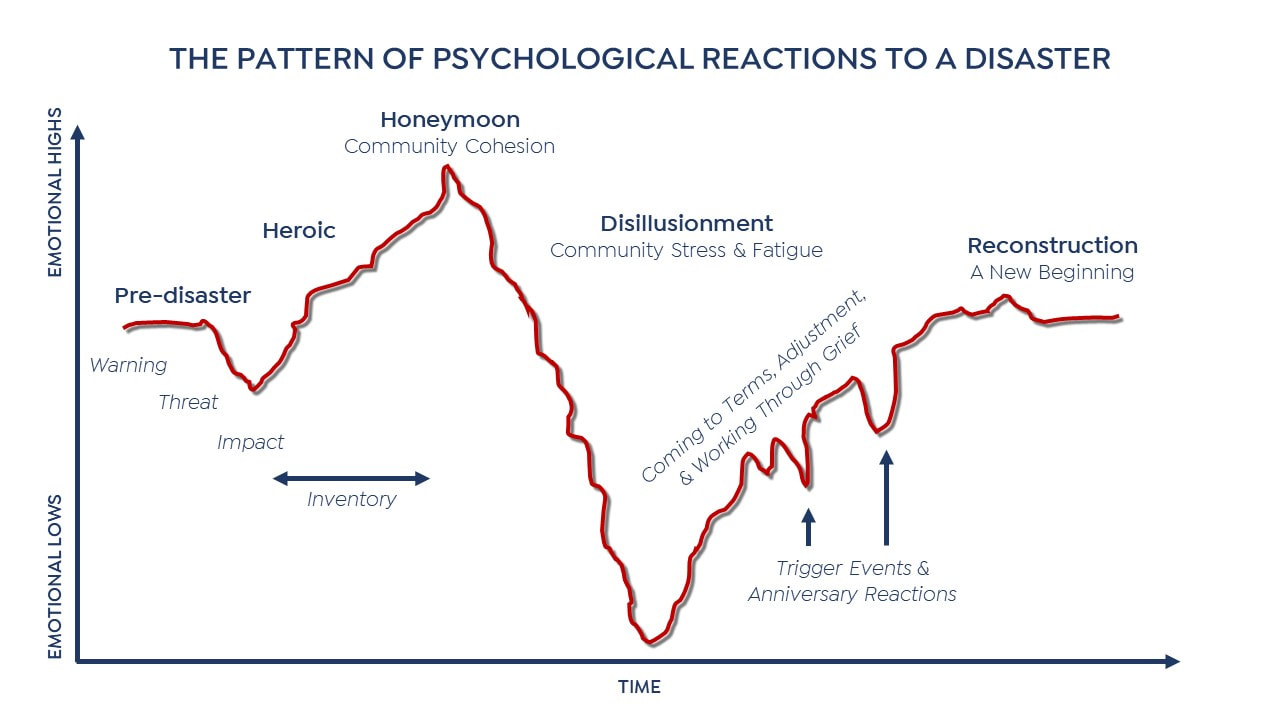 Adapted from DeWolfe: Training Manual for Mental Health and Human Workers in Major Disasters. Second Edition. US Department of Health and Human Services (2000). For a detailed description of each of the phases in the graph above, please see Chapter 2 of the HHS Training Manual hyperlinked for your convenience. For the purposes of this blog, I want to point out that most of us are still coming to terms with what leading, living, working, and serving is going to look like in this new year. We're still coming to terms with our financials, goals, and projects for the new year; with the economy, hybrid and remote work; with culture, supply chain issues, and the strategic adjustments and change management and leadership that's going to be needed—all while so many are still working through grief and burnout. Knowing where you, your team and organization, and the communities we serve are at in this pattern—and being real about that—are important if you're going to effectively lead as part of the solution instead of contributing to the chaos. Four Factors of Effective Crisis Leadership There are four factors that are empirically linked to and predict effective crisis leadership:
Free Online Training Resources While these four factors are empirically linked to effective crisis leadership, what most of us need are some specific guidelines and recommendations on how to operationalize them. In walks John Hopkins Medicine and their Office of Well-Being. They offer us their free, online Frontline Crisis Leadership Training program that includes ten guiding principles, online video trainings featuring Dr. Everly and others, and downloadable resources. While they've named it "Frontline," I think that any leader will find great value in watching the videos and reviewing their resources and the ones that I've cited in this blog. It makes a great starting point for you as you strategize and plan on how you are going to lead going into 2023. Thank you, John Hopkins! A Marathon, not a Sprint So, welcome 2023! The marathon continues and we are up to the challenge. You became a leader to make a difference in the world. That means a continual search for new ways to lead, new strategies, new resources, a renewed vision, and new or revised goals as we start the new year. It is my sincere hope that this blog in some small way helps you to do just that. Add some impetus & momentum to your efforts As you strategize and plan for 2023, keep in mind that partnering with a coach and/or a consultant can add impetus and momentum to your efforts. They are an ideal strategic tool that you can add to your leadership effectiveness as you start the new year. I would be honored to discuss with you what a partnership like that would look like. 50% off all coaching bundles has been extended through January 20. Please, don't hesitate to reach out: Contact Page Have an amazing journey this year! Alan Mikolaj is a coach and leadership development consultant with 15+ years of experience. He is passionate about helping leaders transform their leadership, their teams, and their organizations. Impactful, professional approach driven by a passion for meaning and purpose, a growth mindset, and a commitment to excellence and service in order to drive change and results. Alan maintains the ethics and standards of behavior established by the International Coaching Federation (ICF), including the standards regarding confidentiality. You can learn more about them on the ICF website. CITATIONS
DeWolfe, Deborah J. (2000). Training Manual for Mental Health and Human Workers in Major Disasters. Second Edition. US Department of Health and Human Services. Everly, G. S., Wu, A. W., Cumpsty-Fowler, C. J., Dang, D., & Potash, J. B. (2022). Leadership principles to decrease psychological casualties in COVID-19 and other disasters of uncertainty. Disaster Medicine and Public Health Preparedness, 16(2), 767-769. The Johns Hopkins Health System Corporation, Office of Well-Being. (2020). Frontline Crisis Leadership Training Resources. Accessed December 28, 2022. https://www.hopkinsmedicine.org/office-of-well-being/resources/leadership/frontline-crisis-leadership.html |
Alan Mikolaj
Alan Mikolaj is a a professional, experienced, positive, and passionate speaker, leadership and organizational development consultant, change agent, author, and coach. He holds his Master of Arts degree in Clinical Psychology from Sam Houston State University. He is a certified graduate coach from Coaching Out of the Box and holds his ACC and membership with the International Coaching Federation (ICF). Free Discovery Conversation!
Impactful change starts with a conversation! Schedule your free, one-hour session by clicking here: Discovery Conversation with Alan
Or call or email: Contact Page In his third book, A Travel Guide to Leadership, Alan offers you simple, fundamental, and powerful lessons that have the power to transform you, your relationships, and your career.
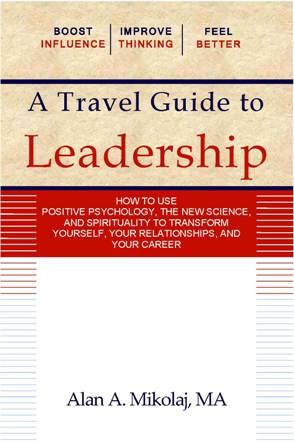
Blog Archives
July 2024
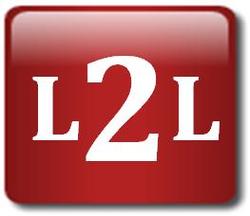
Linked2Leadership
Ranked #1 Business Blog! |
|
CONTACT
TEL: 346-291-0216 EMAIL: [email protected] SCHEDULE TIME WITH ALAN Free Discovery Conversation with Alan |



